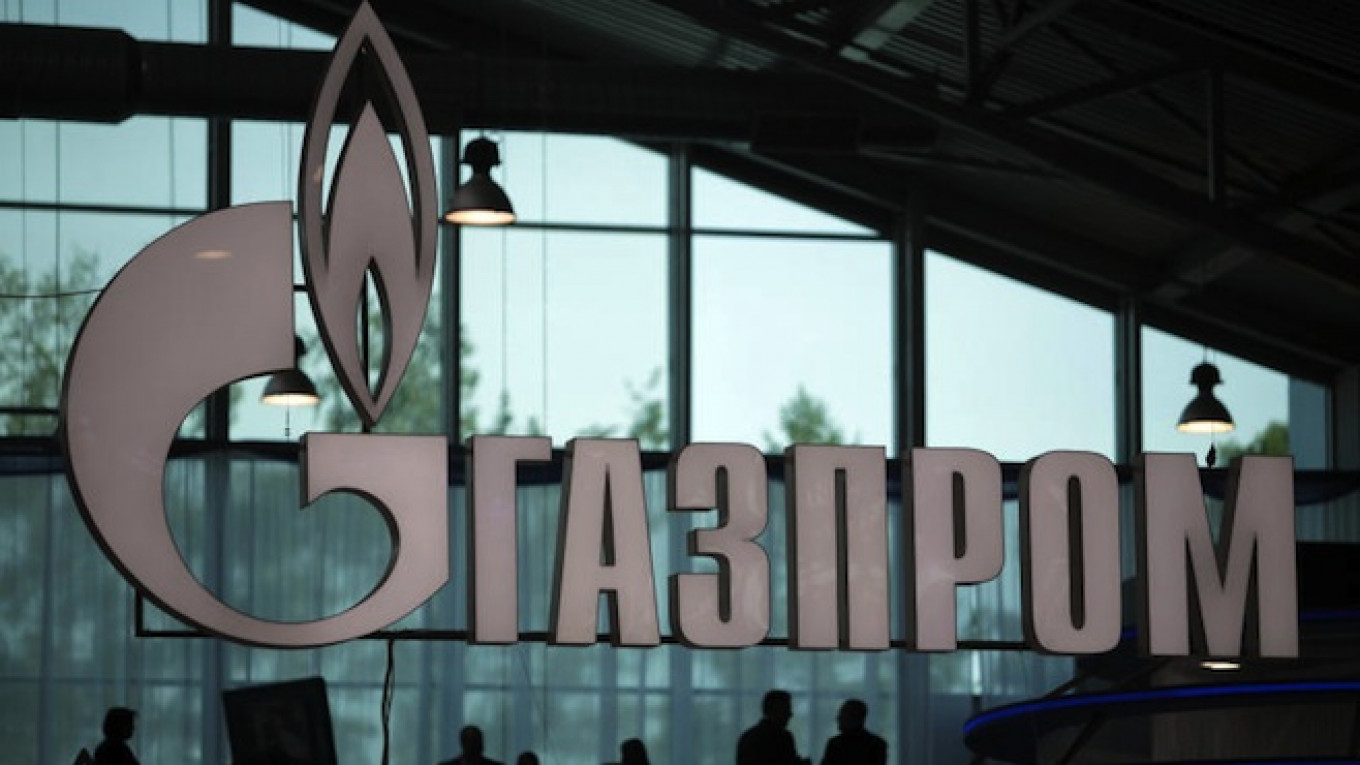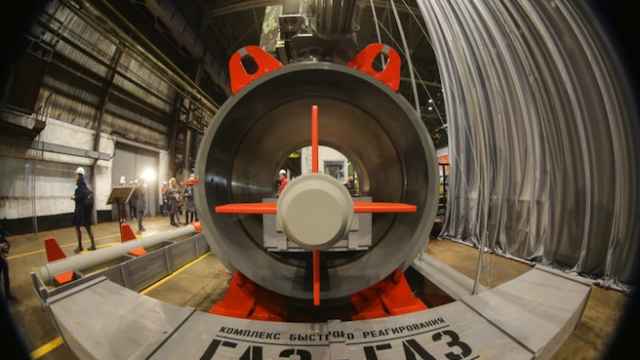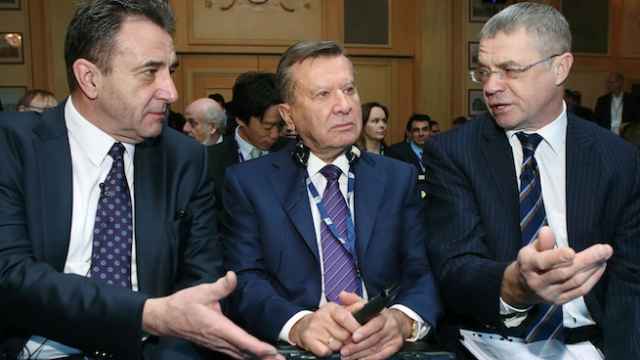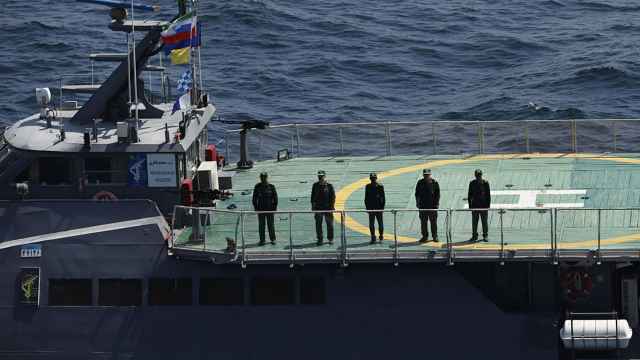Russian state gas producer Gazprom suffered a 60 percent slump in third-quarter net profit on Thursday, hurt by the weaker ruble and after exports were halted to Ukraine over a pricing dispute.
The world's biggest natural gas company's third-quarter net profit fell to 105.7 billion rubles ($1.52 billion), down from 276 billion rubles in the same period a year earlier though better than analysts' predicted.
Gazprom warned lower oil prices could curtail its investment plans.
The firm stopped supplying Ukraine with gas in June in a dispute over pricing and debt, which hurt its revenues. In its nine-months report, it said it has also put aside 83.9 billion rubles to cover Ukraine's gas debt.
As ties between Moscow and the West fell to post-Cold War lows over Russia's role in the crisis in eastern Ukraine, the ruble has plunged on weaker oil prices and sanctions. Gazprom was hit with a foreign exchange loss of 320.7 billion rubles in the nine-month period versus a loss of 115.4 billion rubles a year ago.
Alexander Nazarov, an analyst with Gazprombank, said Gazprom's third-quarter results showed currency losses of 273 billion rubles. The ruble plunged more than 40 percent last year, with its steepest declines in the fourth quarter.
The debt and pricing dispute with Ukraine led to Gazprom having its lowest annual gas output of 444 billion cubic meters (bcm) in 2014.
Ukraine was once Gazprom's largest export market, but it has cut imports from Moscow from 59 bcm in 2006 to just 14.5 bcm last year.
This year, Ukraine's Naftogaz plans to buy about 8 bcm from Russia.
Russia and Ukraine reached an interim gas deal agreement in October and Kiev paid off part of its debts to Gazprom, which the Russian producer now puts at $2.44 billion.
Kiev disagrees with this estimate and the agreement expires at the end of March.
In Vienna, Sergei Komlev, a directorate head at Gazprom, told a conference: "We are doing our utmost to resolve problems with [Ukraine's] Naftogaz."
He said Moscow did not want to "endanger the well-earned trust of our European partners" which get about a third of their gas needs from Russia, half of it via Ukraine.
EU foreign ministers were meeting later Thursday to consider imposing new sanctions on Russia. Moscow has backed separatists fighting government forces in eastern Ukraine, although it denies sending in troops or weapons.
Outlook
Gazprom said its net profit in the first nine months of 2014 was down 35 percent year-on-year at 556.3 billion rubles.
"Further falls [in oil] may negatively affect our business … [and] the ability to finance planned capital investments," Gazprom said in its statement.
Oil prices have fallen 60 percent since June. Gas prices usually lag oil by six to nine months. Gazprom's results include its oil unit as well, Gazprom Neft, which is also drilling for Arctic and shale oil, areas both hit by sanctions.
Nazarov cautioned against overreacting to Gazprom's outlook on the possible impact of lower oil prices.
"Gazprom's short-term debt that they should pay off by September-end of 2015 was at 331 billion rubles while EBITDA generated in the third quarter alone — 475 billion rubles," he said.
Gazprom is the last large Russian company to report third quarter results. Its oil peer, the state oil company Rosneft and gas firm Novatek earlier posted similarly steep falls in third-quarter earnings.
A Message from The Moscow Times:
Dear readers,
We are facing unprecedented challenges. Russia's Prosecutor General's Office has designated The Moscow Times as an "undesirable" organization, criminalizing our work and putting our staff at risk of prosecution. This follows our earlier unjust labeling as a "foreign agent."
These actions are direct attempts to silence independent journalism in Russia. The authorities claim our work "discredits the decisions of the Russian leadership." We see things differently: we strive to provide accurate, unbiased reporting on Russia.
We, the journalists of The Moscow Times, refuse to be silenced. But to continue our work, we need your help.
Your support, no matter how small, makes a world of difference. If you can, please support us monthly starting from just $2. It's quick to set up, and every contribution makes a significant impact.
By supporting The Moscow Times, you're defending open, independent journalism in the face of repression. Thank you for standing with us.
Remind me later.






